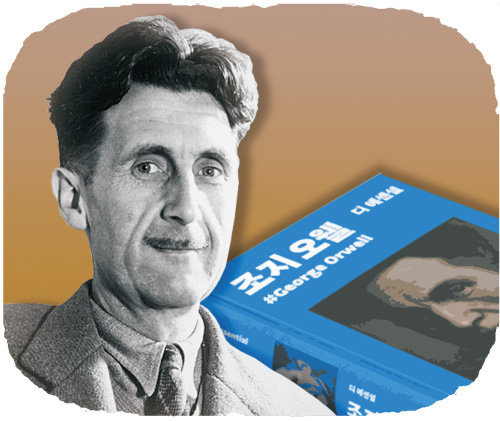One mind less, one world less
One mind less, one world less
Posted November. 09, 2022 08:09,
Updated November. 09, 2022 08:09

Sometimes, short, simple writing can strike a chord. Case in point: A Hanging, a short essay written by English novelist George Orwell who authored masterpieces such as Nineteen Eighty-Four and Animal Farm. His profound essay makes you contemplate the meaning of life. The story is based on his real-life experience in Myanmar in the mid-1920s when he worked as a colonial police officer.
The story starts by depicting a day when a hunched Hindu prisoner was to be hanged. Warders with rifles and fixed bayonets were dragging him to the gallows. And then, the prisoner walking clumsily stepped slightly aside to avoid a puddle on the path despite the warders who gripped him by each shoulder.
That man's simple, instinctive response stunned Orwell. Until that moment, he did not "realize what it means to destroy a healthy, conscious man." But when he saw that prisoner stepping aside to avoid a puddle, he felt the "unspeakable wrongness." The prisoner's eyes saw the yellow gravel and the grey walls, and his brain still remembered, foresaw, and reasoned, just like we would have. He was "alive just as we were alive," all of his body organs working - "bowels digesting food, skin renewing itself, nails growing, tissues forming." His nails would still be growing "even when he was falling through the air with a tenth of a second to live." “He and we were a party of men." And when he dies, "one of us would be gone — one mind less, one world less." Still, warders shared a bottle of whisky amicably together after the execution, less than 100 meters from the dead man.
The story is about a profound reflection on life. It reminds us of the teachings of the ancient Chinese philosopher Lao-tzu who said in his book Tao Te Ching that taking a man's life cannot be done by a man, just as trimming a wood cannot be done by anyone other than the master carpenter. Orwell was in his early twenties when he went through that experience. He experienced that in Myanmar while his peers must have been attending college in Britain. He learned more from the real world than from school. And what he saw, heard, and felt in that real world made him a profoundly inspiring writer.
Headline News
- Joint investigation headquarters asks Yoon to appear at the investigation office
- KDIC colonel: Cable ties and hoods to control NEC staff were prepared
- Results of real estate development diverged by accessibility to Gangnam
- New budget proposal reflecting Trump’s demand rejected
- Son Heung-min scores winning corner kick







